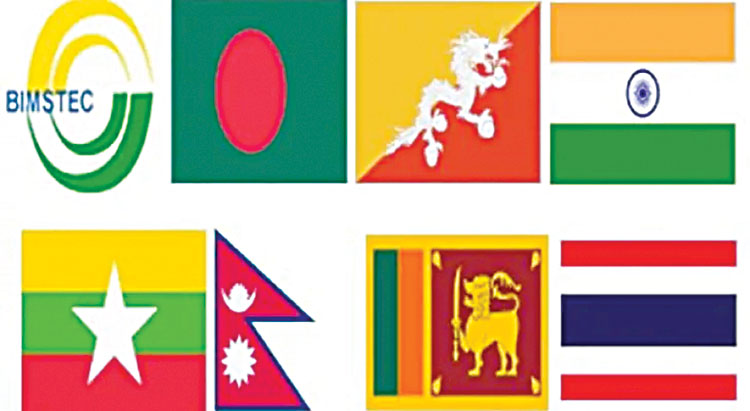New Delhi, March 30 (Agency) Along with signing of the BIMSTEC charter, the seven member states of the grouping agreed to a complete reorganisation of the BIMSTEC cooperation activities that would take place on seven pillars, with India to lead the security pillar, a top official said here. Rudrendra Tandon, additional secretary BIMSTEC and SAARC, said as part of the security pillar, India’s approach would be to try and “establish the highest quality norms for combatting terrorism and transnational crime and other non traditional crimes and also put in place all the legal mechanisms required to enable our law enforcement agencies to collaborate as closely as possible to tackle these crimes,” he said at a special briefing on the summit. This would be through the BIMSTEC Convention on Mutual Legal Assistance in Criminal Matters (MLAT) and other agreements in the pipeline, said Tandon, who was India’s ambassador to Kabul at the time of the Taliban takeover last year.
He said the signing of the charter makes the grouping into a formal regional organisation. “With the charter, BIMSTEC has an international personality, an emblem, a flag, formally listed purpose and principles that it is going to adhere to and an architecture. This is a significant evolution of the grouping, it has gained a lot of traction after 2014.” Another major activity was approval granted by the leaders to a complete reorganisation of BIMSTEC cooperation activities. From now BIMSTEC cooperation activities will take place on seven pillars, each pillar will be led by one of the member states who will be primarily responsible for furthering cooperation in that. It was decided that India will lead the security pillar,” he added. The summit witnessed the signing of three agreements: The MLAT on criminal matters. “This emerged out of the discussions on the security pillar that have taken place in the past, and represents an incremental progress on that agenda,” he added. Another was signing of an MOU of Association to create a center for technological transfers, called technology transfer facility, to be established in Colombo.
The third was an MOU for cooperation between diplomats academies. He said the adoption of the master plan on transport connectivity has been a major agenda on the BIMSTEC platform for several years. The leaders adopted it as a kind of framework for the type of cooperation that is likely to feature in the connectivity space. Among the Indian initiatives, as announced by PM Modi, are a one million USD ad hoc grant to the BIMSTEC Secretariat’s operational budget. Another is a three million USD grant to revive the BIMSTEC Centre for weather and climate change. To take forward the economic integration agenda the PM announced the establishment of a program to be run out of ICRIER in India to adopt as many international standards and norms for the trade facilitation of the economic agenda. Another was the institutionalising of the disaster management exercise that India has been holding on its own. He termed it a “Productive summit from our perspective” .

